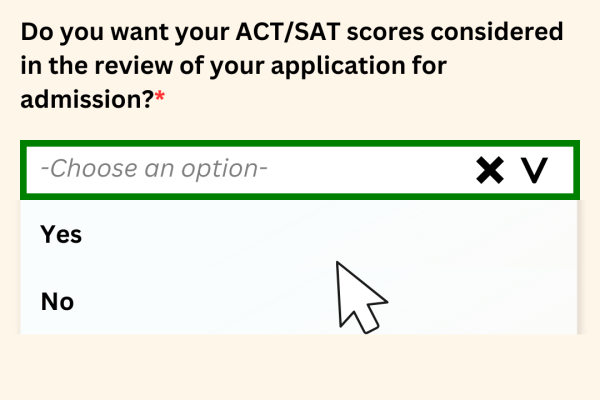
For over 150 years, standardized testing has been an integral part of the college admissions process. The SAT, first administered in 1926, and the ACT, first administered in 1959, are two standardized tests most commonly considered by colleges and universities for admission.
Colleges can be divided into three categories: test-required, test-optional and test-free. Test-free institutions do not consider test scores even if applicants submit them, and test optional institutions only evaluate an applicant considering their test scores if they choose to submit them. Bowdoin College became the first test-optional college in the United States in 1969. The number of colleges and universities opting for a test-optional policy surged in the late 90’s and again more recently in 2020 in the face of the coronavirus pandemic. As of 2023, 1,843 colleges and universities in the United States are test-optional.
Carey Otto, college counseling assistant and AP coordinator, explained that while standardized testing can produce important data, it has limitations that cannot be ignored.
“I think that [standardized tests] are a valuable tool in terms of assessing a student’s academic ability; potentially the rigor of the course load that they’ve taken up until that point,” he said. “But by no way do they completely outline the potential or capability of any human being.”
The ACT and SAT provide data that allow students to be compared objectively to other students across the nation, which can be a useful piece of information to college admission officers. However, the decision to send test scores to a college is not always an easy one.
Source: College counseling office
“I think that my biggest concern is that for a long time, before many institutions went test-optional, it created so much emphasis and stress on the students to achieve a score that they felt was going to qualify [them] for enrollment at an institution,” Otto said.
Senior Bridget Keel decided to submit her test scores after her college counselor encouraged her to take the ACT a second time.
While she couldn’t decide whether or not her first score would benefit her application, she felt confident that her second score reflected herself well as a student.
“My second score–everyone told me I should submit it, so it wasn’t really a discussion,” Keel said. She explained that she never felt much pressure over the decision to opt in or out of submitting test scores.
On the other hand, senior Will Black plans to take advantage of the test-optional policies at the schools he is applying to.
“I don’t plan on submitting test scores,” he said.
Although he took the ACT once and plans on taking the SAT before sending out applications, he isn’t counting on including the scores in his applications.
“I don’t feel like test scores are really looked at super closely anymore, so I don’t think it would matter too much … my score didn’t really benefit me,” he said.
The primary differences between the ACT and SAT lie in their number of questions, the amount of time test takers are allotted and the fundamentally different feel of both of them, according to Otto.
“Each test has kind of a different structure, and we have found that some students prefer one structure over the other,” he said.
For students hoping to improve their score on either test, Otto explained that the key is gaining comfort with the format of the tests themselves.
“Students that do take each exam multiple times will tell you that they felt much more comfortable with the structure and the format of the exam after they got exposed to it, which is part of the reason why we feel it’s so important in college counseling to give 10th and 11th grade students the opportunity to take the practice tests,” he said.
From a broad standpoint, the pros of opting out of submitting test scores are plentiful. Students who choose not to submit do not need to devote time to studying for the tests and are free of the costs associated with registering for the ACT or SAT. Their application may also be evaluated more holistically than that of an applicant who did submit scores.
To students debating whether or not to take the SAT or ACT or send scores to colleges, Otto urges them to utilize the resources available to them at school.
“In terms of guiding students … talk with your college counselors. Be candid about the reasons why you might be skeptical about why you should or shouldn’t be taking this exam,” he said. “I think that today, in the world of standardized tests as applied to college admissions, you’ve got more latitude and more leeway. And I think that the best advice I can give a student is do what you’re most comfortable with.”
The College Counseling office will host an optional PSAT for juniors on Wednesday.
This story was originally published on The Rubicon on October 16, 2023.






































